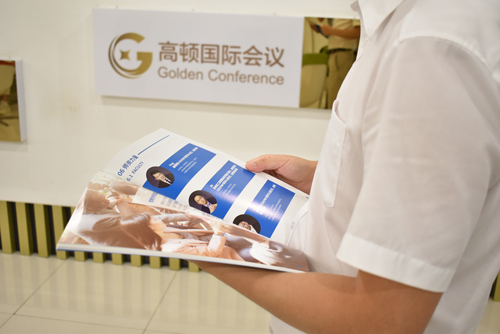
ACCA P1重要考点解析
- 2015年12月18日
- 10:28
- 来源:高顿财经
- 阅读:(89)
2023ACCA备考资料
- 财务英语入门
- 历年考题答案
- 2023考纲白皮书
- 2023考前冲刺资料
- 高顿内部名师讲义
- 高顿内部在线题库
摘要:【高顿ACCA小编】2016年 ACCA 即将迎来一年四次考试,我们将第一时间公布考试相关内容,请各位考生密切关注高顿ACCA,预祝大家顺利通过ACCA考试。今天为大...
【高顿ACCA小编】2016年ACCA即将迎来一年四次考试,我们将第一时间公布考试相关内容,请各位考生密切关注高顿ACCA,预祝大家顺利通过ACCA考试。今天为大家带来的是ACCA P1重要考点解析
Internal audit
(1) Internal audit is an appraisal or monitoring activity established by management and directors for the review of the accounting and internal control systems as a service to the entity.
(2) Internal audit functions by examining, evaluating and reporting to management and directors on the adequacy and effectiveness of components of the accounting and internal control systems.
(3) Internal audit is a management control. It reviews the effectiveness of other controls within a company.
(4) The work of audit is varied – from reviewing financial controls through checking compliance with legislation.
(5) The internal audit department is normally under the control of a chief internal auditor who reports to the audit committee.
(Importance)
(1) In some situation, it is a statutory requirement to have internal audit.
(2) In some situation, it is required to have internal audit by codes of corporate governance.
(3) Internal audit provides an independence check on the control systems in a company.
(4) Internal audit is a management control.
Auditor independence
(1) Internal audit is an independent objective assurance activity.
(2) To ensure that the activity is carried out objectivity, the internal auditor must have their independence protected.
(3) Independence is assured in part by having an appropriate structure with which internal auditors work.
(4) Independence is assured in part by the internal auditor following acceptable ethical and work standards.
(5) Internal auditors should be independent of executive management and should not have any involvement in the activities or systems that they audit.
(6) The head of internal audit should report directly to a senior director or the audit committee and should have direct access to the chairman of the board of directors, and to the audit committee, and should be accountable to the audit committee.
(7) The audit committee should approve the appointment and termination of appointment of the head of internal audit.
Threats to auditor independence
(Conceptual framework)
(1) Self-interest threat: Occurs when the audit firm or a member of the audit team could benefit from a financial interest in, or other self-interest conflict with an audit client.
(2) Self-review threat: Occurs when the audit firm, or an individual audit team member, is put in a position of reviewing subject matter for which the firm or individual was previously responsible, and which is significant in the context of the audit engagement.
(3) Advocacy threat: Occurs when the audit firm, or a member of the audit team, promotes, or may be perceived to promote, an audit client’s position or opinion.
(4) Familiarity threat: Occurs when, by virtue of a close relationship with an audit client, its directors, officers or employees, an audit firm or a member of the audit team becomes too sympathetic to the client’s interests.
(5) Intimidation threat: Occurs when a member of the audit team may be deterred from acting objectively and exercising professional skepticism by threats, actual or perceived, from the directors, officers or employees of an audit client.
(Specific threats)
(1) Financial interest in a client. Auditor owns shares in a client company.
(2) Loans and guarantees. Auditor loans money to or receives loans from a client company.
(3) Close business relationships. Auditor partner is director of a client company.
(4) Family and personal relationships. Director’s spouse is director of a client company.
(5) Employment with assurance clients. Member of assurance team accepts senior position at a client company.
(6) Size of fees. Audit firm has a significant amount of fees derived from one client.
(7) Gifts and hospitality. Auditor is provided with a free holiday by the client.
(Ethical threats to internal auditor)
(1) Pressure from an overbearing supervisor, manager or director, adversely affecting the accountant’s integrity.
(2) An auditor might mislead his employer as to the amount of experience or expertise he has in order to retain his position within the internal audit department.
本文由高顿ACCA编辑整理,转载请注明出处
推荐:考生都在用的ACCA资料>>【领取2023ACCA完整资料】 (资料包含ACCA必考点总结,提升备考效率,加分必备)
版权声明:
1、凡本网站注明“来源高顿ACCA”或“来源高顿、ACCA学习帮”,的所有作品,均为本网站合法拥有版权的作品,未经本网站授权,任何媒体、网站、个人不得转载、链接、转帖或以其他方式使用。
2、经本网站合法授权的,应在授权范围内使用,且使用时必须注明“来源高顿ACCA”或“来源高顿、ACCA学习帮”,并不得对作品中出现的“高顿”字样进行删减、替换等。违反上述声明者,本网站将依法追究其法律责任。
3、本网站的部分资料转载自互联网,均尽力标明作者和出处。本网站转载的目的在于传递更多信息,并不意味着赞同其观点或证实其描述,本网站不对其真实性负责。
4、如您认为本网站刊载作品涉及版权等问题,请与本网站联系(邮箱fawu@gaodun.com,电话:021-31587497),本网站核实确认后会尽快予以处理。
分享到:
急速通关计划
ACCA全球私播课
周末面授班
其他课程
- 上一篇:acca考试具体内容有哪些?
- 网站首页 返回栏目
- 下一篇:ACCA和CPA哪个难?通过率哪个高?
报考指南
2023年ACCA备考机经
价值1288元 考试必备资料 免费领取 高顿ACCA研究院独家出品
价值1288元 考试必备资料 免费领取 高顿ACCA研究院独家出品
领取ACCA资料包
大家都在看
-
阅读(9579)
-
阅读(9083)
-
阅读(9068)
-
阅读(8764)
-
阅读(8739)
日排行 • 周排行
- 1 acca课程体系?acca考试具体内容有哪些?
- 2 ACCA FM | NPV和IRR两大评估方式+对比
- 3 acca考试具体内容有哪些?
- 4 acca考出来对进四大有帮助吗?
- 5 ACCA让我不再迷茫,打开全新视野!
- 6 超详细ACCA报考流程
- 7 ACCA F2重要考点解析
- 8 FA之Provision如何拿满分丨ACCA Cloud
- 9 ACCA知识点:增值激励计划
- 10 ACCA考试科目这盘“大餐“怎么搭配最“营养”
- 1 2023年ACCA考试科目通过率排名:哪些科目最容易通过?
- 2 2024年参加12月acca考试带什么?准考证可以打印了吗?
- 3 2024年accaf1裸考能过吗?历年通过率多少?
- 4 定了!2023年acca要考几年能考下来?要考几科才可以拿出去面试?
- 5 2023年申请acca免考科目的条件?最多可以免考几门科目?
- 6 2023年哪些大学财会专业比较好?没错了,就是这几所!
- 7 acca学姐来解答2023年acca是什么考试?各科目全称是什么?
- 8 速看!2023年会计学acca是什么意思?一文教你看懂!
- 9 定了!2023年acca考位满了还有可能报上吗?
- 10 acca学姐科普,2023年acca考试p阶段考试科目有哪些?难度大吗?
-
ACCA考试热门词
-
ACCA内部备考资料高顿ACCA为您免费提供2023年全新ACCA资料,包括历年考题、考官报考、考官文章、考纲解析、学霸笔记、内部讲义等,同时还助您了解新学员报名注册指南、机考报考考试引导、OBU&UOL申请攻略等,点击免费获取。
-
- ACCA常见问题
- ACCA推荐阅读
- ACCA考试资讯
- ACCA原创文章
- ACCA学霸分享
- ACCA常见问答







